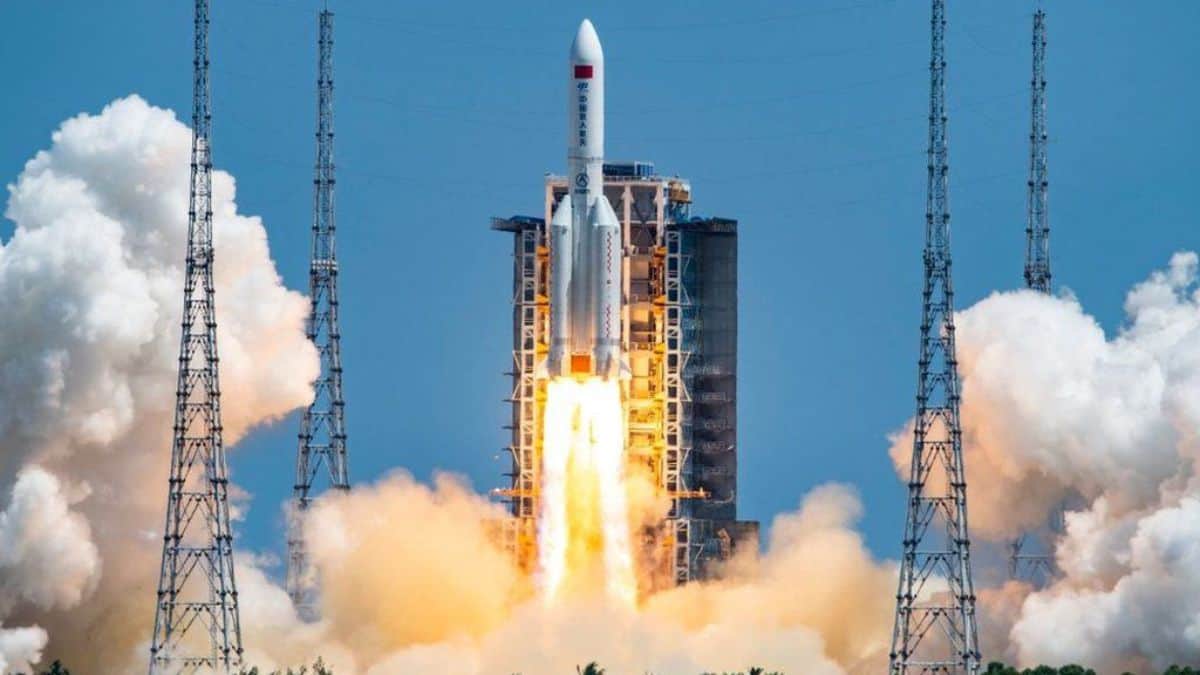China faces backlash for not sharing the data its crashed rocket data in the Indian Ocean with NASA

On Saturday, a Chinese rocket crashed down to Earth over the Indian Ocean, according to NASA, which said Beijing had not provided the “precise trajectory information” required to determine where potential debris may fall.
#USSPACECOM can confirm the People’s Republic of China (PRC) Long March 5B (CZ-5B) re-entered over the Indian Ocean at approx 10:45 am MDT on 7/30. We refer you to the #PRC for further details on the reentry’s technical aspects such as potential debris dispersal+ impact location.
— U.S. Space Command (@US_SpaceCom) July 30, 2022
People in Malaysia tweeted videos of what seemed to be rocket debris on social media.
The entire main-core stage of the rocket, which weighs 22.5 tonnes (approximately 48,500 lb), should not have been allowed to reenter the atmosphere in an uncontrolled manner, according to Aerospace Corp, a government-funded nonprofit research institute close to Los Angeles.
Analysts predicted earlier this week that the rocket body would shatter as it entered the atmosphere, but because it is so big, many pieces will probably survive a catastrophic re-entry and rain debris over an area that is roughly 2,000 km (1,240 miles) long by 70 km (44 miles).
The Chinese embassy in Washington declined to react right away. China stated earlier this week that it will watch the debris attentively but claimed that there was no danger to anyone on the ground.
The Long March 5B, China’s most potent rocket, launched on July 24 to carry a laboratory module to the new Chinese space station being built in orbit. This was the rocket’s third trip since its initial launch in 2020.
In 2020, pieces of a different Chinese Long March 5B fell on the Ivory Coast, destroying a number of structures there, although no injuries were reported.
He asserted that in contrast, the United States and the majority of other space-faring countries typically incur additional costs when designing their rockets to prevent large, uncontrolled re-entries. This practice has become increasingly common since 1979 when large pieces of the NASA space station Skylab fell from orbit and crashed into Australia.
After the Beijing government remained silent regarding the predicted debris trajectory or the reentry window of its final Long March rocket launch in May 2021, NASA and other organisations last year accused China of being secretive.
That flight’s debris eventually made a safe landing in the Indian Ocean.


